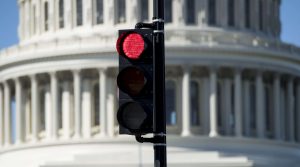Evaluating the Effectiveness of Libertarian Economic Policies Worldwide
Evaluating the Effectiveness of Libertarian Economic Policies Worldwide
Libertarian economic policies, emphasizing individual liberty and limited government intervention, have been adopted in varying degrees by countries across the globe. Analyzing their effectiveness requires a nuanced approach, considering both theoretical benefits and real-world outcomes. This article explores the impact of these policies on key economic indicators, examines successful and less successful examples, and discusses the challenges in evaluating their true impact.
What are Libertarian Economic Policies?
At their core, libertarian economic policies champion free markets, private property rights, and minimal government regulation. This typically translates into lower taxes, deregulation, free trade, and sound money. Proponents argue these policies foster innovation, economic growth, and individual prosperity. Critics, however, raise concerns about income inequality, environmental protection, and the potential for market failures.
Key Indicators for Evaluating Effectiveness:
Evaluating the success of libertarian policies requires examining various economic indicators:
- Economic Growth (GDP): Does a libertarian approach lead to higher GDP growth rates compared to other economic models?
- Income Inequality: Do these policies exacerbate or mitigate the gap between the rich and the poor?
- Unemployment Rates: Are free markets more effective at creating jobs and reducing unemployment?
- Innovation and Entrepreneurship: Do reduced regulations stimulate innovation and encourage new businesses?
- Government Debt: Does fiscal discipline associated with libertarianism lead to lower government debt levels?
- Economic Freedom Index: How do countries with more libertarian policies rank on established indices of economic freedom?
Examples of Libertarianism in Action:
Several countries have implemented policies aligned with libertarian principles, albeit to varying extents:
- Hong Kong: Often cited as a prime example, Hong Kong’s historically low taxes and minimal regulations contributed to its rapid economic growth. However, increasing Chinese influence raises questions about the future of its free market model.
- Singapore: Another East Asian success story, Singapore combines a free market approach with strategic government intervention in areas like housing and healthcare.
- Switzerland: Known for its stable economy and low taxes, Switzerland offers a European example of relatively libertarian policies.
- United States: While not fully libertarian, the US has experienced periods of deregulation and tax cuts, allowing for analysis of their impact.
Challenges in Evaluating Effectiveness:
Isolating the impact of libertarian policies can be challenging due to several factors:
- External Factors: Global economic conditions, technological advancements, and geopolitical events can influence a country’s economic performance regardless of its domestic policies.
- Mixed Economies: Most countries implement a mixed economy, blending elements of free markets with government intervention. This makes it difficult to attribute specific outcomes solely to libertarian policies.
- Time Lags: The effects of economic policies can take years or even decades to fully manifest, making it difficult to assess their long-term impact.
- Defining "Libertarianism": The spectrum of libertarian thought is broad, with varying interpretations of its core principles. This makes comparing different implementations challenging.
Conclusion:
While proponents argue for the superior efficiency and growth potential of libertarian economic policies, the evidence remains mixed. Analyzing various countries and considering a range of economic indicators is crucial. Further research and careful consideration of contextual factors are needed to draw definitive conclusions about the effectiveness of libertarianism in promoting widespread prosperity. Identifying the specific policies that work best, and under what circumstances, remains a complex but important task. The ongoing debate highlights the need for rigorous evaluation and a nuanced approach to understanding the role of government in the economy.
Share this content:







Post Comment